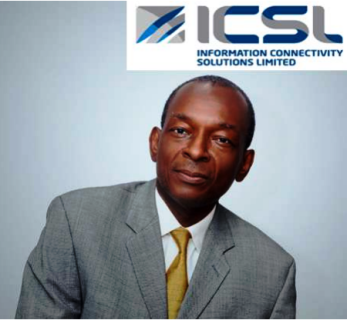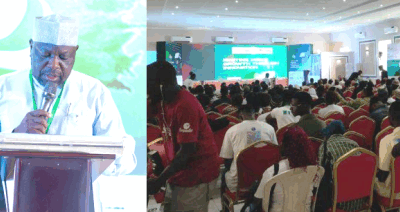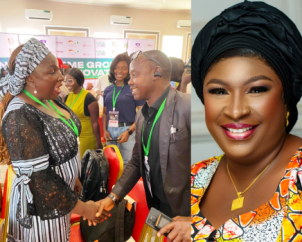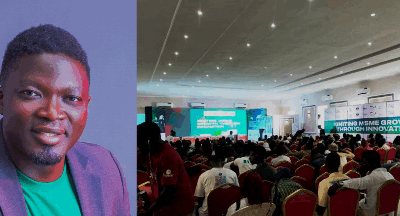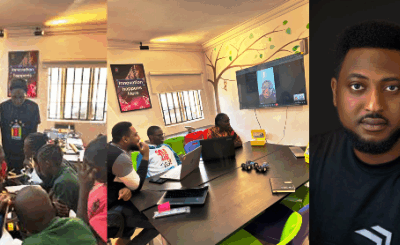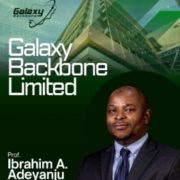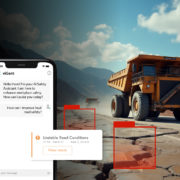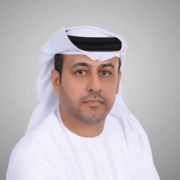In a recent interview with IT Edge News, Yemi Oshodi, CEO of Information Connectivity Solutions Limited (ICSL), discussed the critical challenges facing the ICT industry. He identified power issues as the most significant obstacle, affecting delivery times and increasing service costs. Oshodi emphasized the enduring market opportunities for both LEO and GEO satellite providers, noting that neither will eliminate the demand for fiber optics. Instead, the future of the industry lies in collaborative efforts to deliver hybrid services to end users. He also stressed the importance of capacity building to ensure a steady supply of qualified professionals, which is crucial for sustainable growth in the sector.
What are the most significant challenges ICSL faces in delivering broadband network infrastructure and connectivity solutions across Nigeria?
Power is the most challenging. Everything else is sort of normal business exigencies. The power situation is something that poses quite a bit of a challenge for us. When you go to certain parts of the country where there’s adverse weather, there’ll be you know, heavy rain, there’ll be lightning, we can mitigate against all that. But when the power goes off, and then comes back with a surge, and it blows your equipment, you know, because sometimes you have surge protectors but if it damages a surge protector, then it’s going to damage your equipment. I don’t need to tell you that equipment nowadays is incredibly expensive. Even aside from the cost, network service to your customer is down. You have to rush back to the site to go fix it, you test the power at the site, and you’ll see that the power is not clean and is fluctuating. You are now at a dilemma. Do I put another piece of equipment there and just let it blow within a week? Or do I call the customer and say, look, the power at your site is not good and I have to wait two days for them to fix their power and then I put my equipment back.
RELATED: Sawtel Technologies, ITEX, RIL, ICSL, AOPN for WACC 2016
You can see the challenges we face with power. Something that should be a three-hour job can take you three days, four days sometimes. So that, to me, is the biggest challenge. Everything else you can resolve. For example, if the roads are bad, I have a four-wheel drive Toyota Hilux that can move my guys around. So that’s not an issue. We hire local engineers in areas with issues of banditry so that is really not an issue. Our guys on site know the layout and how to navigate it. For example, I’m from Lagos. If I’m going to install in Ajegunle I know how to prepare myself. When it comes to personal safety. Yeah, we can sort of mitigate against that, if the area is hot, we can tell the client, look, the area is hot, we won’t go this week, we’ll go tomorrow or we’ll go next week, you know, but that power, there’s nothing you can do. You know whatever you’re putting up there when something happens, your equipment gets damaged, it could take three, four days to replace the equipment.
Are there any alternatives you are looking at outside of the public power supply?
We can’t buy independent power in every location, otherwise, the solution becomes incredibly expensive. This is Nigeria, you know the grid will go down. You’re not gonna get 24 hour power anywhere so the clients are going to turn on their gen. If you’re looking at something in the middle of the bush, let’s say in Taraba state or, you know, Zamfara state or some of these, you know, even in the Far East, like in the northern parts of Cross River State, you know, when the generator is faulty, it can take a couple of days, it can take a week or two to get a generator guy up there. So the fluctuating generator is delivering fluctuating power and that will damage your equipment and this equipment is very sensitive. The Cisco switch for example is pretty robust. But anytime there is a power surge, you’re liable to lose equipment. It is just as simple as that.
With the emergence of low Earth orbit (LEO) constellations like Starlink and the anticipated widespread adoption of 5G, how do you see the future of Very Small Aperture Terminal (VSAT) technology in Nigeria? Will it continue to play a critical role, or do you foresee a shift towards these newer technologies?
You know, when the richest man in the world decides to compete against you, it doesn’t really matter what he’s selling, you’ve got a problem. Even if it’s pure water he’s selling. He’s the richest man in the world. He can absorb mind-bending losses. I mean, if he loses five billion dollars it’s not a big deal. He’s worth maybe what? USD$220? The entire market cap of Intelsat is not USD$5 billion. So, when a guy like that shows up to compete against you, it’s a problem. However, having said that, the GEOs and the LEOs, they will always have a place in this market. I want to take you back to maybe 10 years ago, when fiber was being rolled out throughout Nigeria, you know, everybody said the satellite was dead. People got rid of their hubs, virtually every operator in Nigeria got rid of their hubs, and then the naira weakened, and then you had, you know, the satellite guys were charging in dollars, and Nigerians couldn’t pay. The whole thing was a mess. Now, we’re saying what’s the future for VSAT because the richest guy in the world is selling services here. He was selling in dollars, at first, but now he has changed to naira when he experienced his growth.
The power situation is something that poses quite a bit of a challenge. Everything else is sort of normal business exigencies. You can see the challenges we face with power. Something that should be a three-hour job can take you three days, four days sometimes. So that, to me, is the biggest challenge. Everything else you can resolve… bad roads are bad, banditry is really not an issue.
As you can see, Nigerians are basically looking for service. Wherever they get service, they will go. The point I’m trying to make is that, yes, constellation of LEO satellites are formidable competitors. Because the richest man in the world has come to compete against you, that’s no ordinary competition. But hey, the second richest man in the world is about to compete against the richest man in the world so when elephants are fighting, I don’t know who the grass is. Jeff Bezos, who’s going to be rolling out Kuiper I think later this year. Elon Musk has rolled out Starlink. OneWeb [by Eutelsat] is also trying to roll out. So there’s obviously something here. But having said that, we have actually tested the product. And there are some things Starlink cannot do and you still have to have GEO satellites for those functions. Also, there are still some software, I mean, a LEO is still going to give you latency of 100 or 150. There are still some software that can’t tolerate LEOs as they need that latency to be way below a 100. There are software solutions that also don’t work on GEOs because you know, the GEO latency is 550 to 700 milliseconds; that doesn’t work for some software, and there will be certain things you want to do where you don’t need the capacity that the LEO offers. We run on a GEO satellite here, it is a high throughput satellite. But our uptime is 99.95. Now, I don’t know what the uptime on the LEOs is. But I will tell you that from what we have seen, they are also susceptible to weather. You know, they have weather issues. So if you’re running something critical that doesn’t need low latency, you’re going to go with the GEO. I mean, yeah, the LEO works. But if you’re on an offshore platform, and in adverse weather, you can shut down and wait until the weather clears, then fine, you can use the LEO. But if you’re in a situation where you’re in a remote area, and uptime is more important to you, because there’s no way you’re going to be going back and forth and you also have inclement weather, you got to go with the GEO. The point I’m making is that every product is still going to have its place.
The LEO is disruption at its best right now but over time, all the different products will find their space and they will all learn to coexist the same way VSAT has coexisted with Fibre. The same way Fibre has coexisted with radio, the same way machine to machine solutions are taking over and you know, in some locations, you are running internet or 4G networks, 4G LTE networks, all these technologies will have their own place. And you can use them as a conglomerate of solutions. You also have these new software defined boxes where you can plug everything into. For example, you get the software defined box, you plug in an APN link, you plug in a radio link, you plug in a LEO, you plug in a fiber link and you plug in a GEO, you will effectively guarantee yourself virtually 100% uptime, because the minute one goes down, it will just flip over to the next one. There are organisations like Amazon, Netflix, they can’t afford downtime, there’s no such thing as downtime in their business so they use multiple links.
Do you envision the interplay of collaboration and competition, shaping the satellite broadband sector?
You already have that because I believe OneWeb is sponsored by Eutelsat. The industry is already being defined by M&A, a lot of mergers and acquisitions so to a certain extent, you already have that collaboration, so to speak. But what you’re going to see more of is guys like me, forcing the collaboration ourselves. And because I’m agnostic, right, I will use whatever means possible to satisfy my customer. So basically, the example I gave you, you know, we’re in the middle of the bush, and my customer is there, he needs service, and he needs service that is up 24/7 it cannot go down, I will offer him GEO, LEO and whatever else I can offer him that will keep him up through bad weather. So you’re on an island in Bayelsa, and there is no fibre, no towers, there’s nothing and my customer for some reason has a facility there and he needs let’s say live CCTV at certain times of the day. Okay, we’ll use the LEO because that has big capacity. But then if he’s got like internet of things (IoT) type solutions, let’s assume he has a very large farm and he’s doing IoT type solutions, then you can mix that with a GEO. ISPs on the ground are basically doing that already. Now, will the larger players collaborate? I’m not really sure of the LEO guys right now. We’re waiting to see what Kuiper does. Jeff Bezos is no slouch. This is not a guy that runs away from competition. Here is a guy that opened a bookstore when there were bookstores all over the place, and decided to sell books and became the richest man in the world in the process, going against the guy who woke up one day and decided he was going to take on Mercedes Benz, Volkswagen, Porsche, BMW, General Motors, and he took on all of them with his EV cars, and now he’s the richest man in the world. These are two people that are not afraid to mix things up.
In terms of collaboration, I think, the bigger players are going to need to collaborate at some point but basically the business models are different. The LEO guys have a business modelled to offer low-cost internet that is available anywhere in the world, which is not what the GEO guys are doing. It is like Elon Musk collaborating with Volkswagen or Porsche. He is not going to do it because one is a gasoline engine car while his own is electric. I don’t see the collaboration happening. We are the ones that are going to go to customers and say hey you have a location over here that can do this. You know, we can use this product in this location. If I go to a customer like a large bank with 200 branches, for some reason, maybe the regulators tell him hey, look, you can’t just do business in large cities like Lagos, Abuja and Port Harcourt you have to go to the smaller towns all over Nigeria, and there’s no fiber, there’s, you know, there’s nothing there. But the bank wants to put smart ATM machines where you’re going to open accounts and you can transfer money and things like that so the bank needs a link, then you’re gonna use a LEO. But in situations where for some reason over there, let’s say it’s like a cash center, and the bank needs a very steady link, you can use a GEO easily, because whatever they do there, it’s not latency tolerant.
Within ICSL, how are you focused on building capacity to ensure steady supply of qualified professionals to let you meet your customers’ needs?
There is no escaping that. The socio-economic phenomenon in Nigeria has forced out some of the younger people and obviously added to that is the weakness of our currency, the inflation and economic situation in general. This situation has forced some of our best and brightest to seek greener pastures abroad. Nigerians are very talented so it’s easier for a foreign company to come and recruit here. Unfortunately for us, I don’t want to use the word unfortunately, because we’re an English-speaking country, and we speak English pretty well; most of the technology is coming from the west and India. These are all English-speaking countries so it’s very easy to poach Nigerians and fit them in. We’re losing tons of people but you will be amazed at the talent that exists in Nigeria. We have not had a lot of trouble filling holes when we lose people. But is it costing us more money? Yes. What we’ve now done is we’ve started a very strong internship programme and youth service. We bring them in when they’re young, we train them and, we try to keep them, we try to make the atmosphere welcoming for young people. You know, I have an open-door policy. I mean, the young people can walk in here anytime and ask me anything. I provide a staff bus that gives the young people priority at the end of the day, they have to get on first, the other guys are making more money. What do they need the staff bus for? We just try to provide an enabling environment. We get quite a lot of young people coming here for IT and youth service and we use them for all sorts of roles. We do our best to bring in the technical ones. We are not going to hire people that studied Botany, unless they’re really good. But you know Computer Science, IT, Computer and Software Engineering, Physics. We hire those kinds of students for youth service here because those are all technically oriented fields. We expose them to everything. We don’t compartmentalize them. We put them in customer service; networking; software development; sales; we expose them to everything so that when they finally come out of school and they’re ready to work, they will usually let us know, oh, I really enjoyed the time I spent in sales, and I like to work there, or I really enjoyed the time I spent in customer service and I’d like to work there. That’s how we keep our pipeline going.
We also allow for lateral movement within the firm as a result, quite a few times we’ve had people move from customer service to sales or customer service to networking, because since they’ve been dealing with the customers over the years, they have become familiar with what the problems are. We usually provide a lot of training over the years anyway. For example, we just sent 15 employees to be trained on Data Analytics last month because we feel AI is coming, and AI is basically analyzing data, you know, databases. We are going to send them in tranches, they’ve sent the first 15, we’re going to send the next 15 to get quite familiar with data analytics. That’s how we’re handling the Japa Syndrome. I think we’ve adapted well.
How is ICSL adapting to technology advancement, when you refer to how you’re trying to get prepared for the AI revolution you try to address this, but specifically how is ICSL working around the issue of market dynamics, tech trends, just to ensure that you remain at the top of the game ahead of the competition?
As far as AI is concerned, we see other people using it for customer service so that you can fill customer questions before you put a human being on the phone. We have always been a service-oriented firm, so I have always preferred having actual people picking up the phone. We have a service department that is opened 24/7 365, 24 hours a day, seven days a week, 365 days a year. This facility I’m sitting in is open every single day of the year, we never shut down this facility. So in that sense, I prefer to have human beings answer the phone. What we’re looking at doing is seeing if we can develop some sort of AI to field calls. For example, yesterday, you know, we had very adverse weather in Lagos. We have basically weather proofed our facility here. But obviously we can’t weatherproof our customer locations. When you come in, you have a lot of down sites and you’re getting a lot of calls so we’re trying to use AI to sort this. Obviously, the other things that you know AI can help us with is our project management. Let’s say we are building a site somewhere in Borno State and the customer wants to know, okay, I’m giving you this site, I want to know how long is gonna take you to build it, AI can sort of give you an indication in like the last six we built over there, it took us a week, you know, but logistics are better and the weather this time of the year is supposed to be better. So give the customer a week and we know we’ll be able to deliver in four days, thereby making the customer happy, AI can help you with all that type of stuff.
Where do you see ICSL in the next 5 years?
In the next five years. I expect us to be right where we are, but growing. We have several businesses. We’ve sort of expanded into using our technological base. We do consult for state governments, sort of IT consulting, helping them set up their revenue generation and revenue collection processes using technology. When you have a very large state. Literally, every state is IGR challenged at the moment. Every state needs more money, even Lagos. So when you have a state that has a large population and a huge land area, it’s very difficult for the central government to generate IGR from the far reaches of the state. We’ve helped them with various software and connectivity products that can connect to the tax offices, with the main tax office in the state capital. We’ve helped them train workers on how to go out and collect those funds. We’ve helped them train workers on how to use the technology. It’s sort of, you know, a technology consulting overlay on connectivity.
Another thing we’re doing right now is rural telephony. You know, we’re building rural sites, and we’re connecting them, using VSAT to our facility here in Lekkie and then sending it to the MNO. We’re working in partnership with various MNOs so that’s another business that can grow. There are many places in Nigeria that don’t have phone service. We can get you phone service in five days if you show us an area that doesn’t have phone service and you’re willing to pay for it. We can get you a 2G, 3G base station working in five days, where you can make calls, send text messages. In five days you’ll be up and running; that’s something which we’re doing and we believe there’s a lot of growth in this space.

